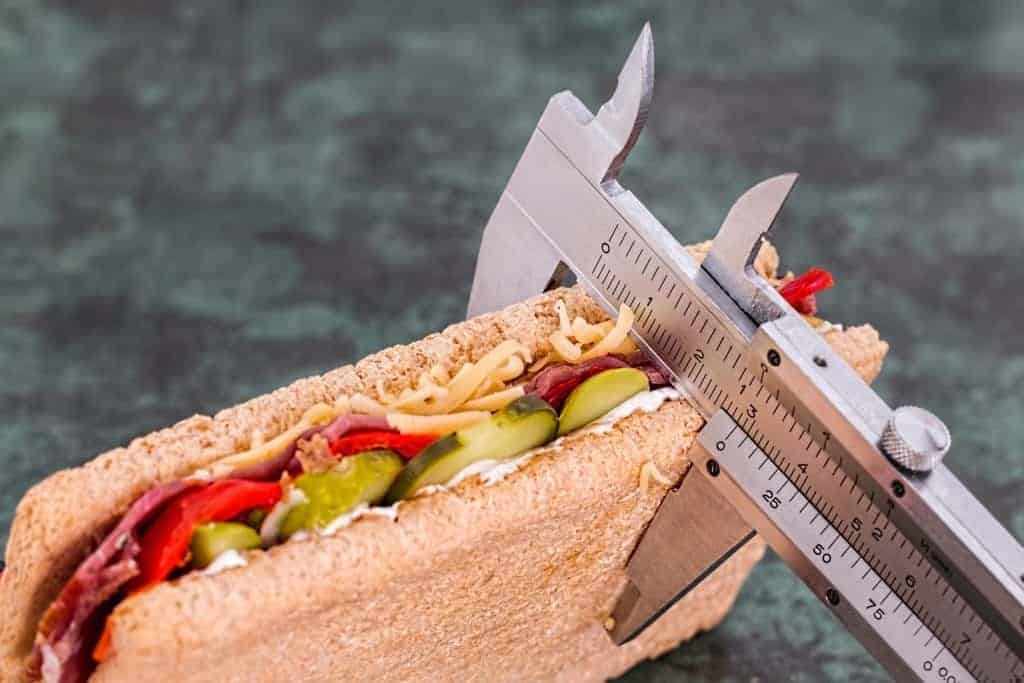Low-fat diets are bad for people, despite popular belief.
The medical industry convinced us low-fat was the only way to eat, and eating too much fat was the cause of all of our modern health problems.
However, as we saw over the past couple of decades since more people are following the low-fat diet, obesity has gone up, and diabetes, heart disease, cancer, and most diseases have increased exponentially!
And that doesn’t even include the number of kids that suffer from attention deficit disorder, anxiety, and problems only adults should be having.
So, what happens when you eat a low-fat diet?
1. You’re Constantly Hungry
Our body knows when it’s had enough food when we don’t consume enough fat it triggers the hormone leptin.
This hormone turns off our desire for food, stops our fat cells from getting bigger, and triggers various enzymes so we can properly digest food.
When you eat a low-fat diet, this hormone doesn’t get triggered, so you always feel hungry.
Additionally, most low-fat foods are very high in sugar, which triggers ghrelin, which makes us hungrier. It’s why diet foods don’t work!
2. It Suppresses Hormones & Increases Depression
Low-fat diets alter our hormones in three specific ways.
- First, without fat, we can’t produce hormones correctly, because hormones are fats.You basically don’t have enough of the raw materials to make what you need.
- Secondly, the added sugars artificially stimulate serotonin production.So, when you eat the low fat, sugar-rich food, you get a happy feeling and a rush of serotonin. But, within a half-hour, the sugar rush has worn off, and you drop down into a depression (and get tired).
- Finally, if the food isn’t filled with sugar, it’s filled with chemicals.Most of them are known as endocrine disruptors and lower your ability to produce hormones correctly, feel good, and remember things correctly. This point right here is why many children who have ADHD find relief through low-carbohydrate, organic diets.
3. It Based on Fraudulent Science
In the 1930s, studies were coming out to show that the increase in sugar in a person’s diet directly correlated with obesity, heart disease, and diabetes.
That’s right, we’ve known for a hundred years that high sugar diets cause health problems. So why does this all seem so new?
The sugar industry paid to produce studies that show fats cause heart disease.
Because of the amount of money and influence from the pharmaceutical and medical associations, the studies became dogma, even though the science proved a fake.
4. There’s No Specific Definition of What “Low Fat” Is
There’s a story that when low-fat foods came out, a particular chip snack food tried to market itself as a naturally low-fat snack.
When compared to regular potato chips, it was by a considerable margin.
However, because other companies marketed a regular and low-fat version of their products, people assumed all processed foods could do that.
So, for this chip company to have a low-fat version, they had to increase the amount of fat in their product so that the original chips could be called low fat and the new high-fat ones called regular.
How did they get away with this? There’s actually no definition for low-fat.
There are guidelines, but these guidelines are vague and easily manipulated.
Because of this, a candy bar is low-fat when compared to an avocado, but we both know which one is healthier.
5. Obesity Increases with Low-Fat Adherence
As more low-fat diets got promoted, obesity became normal.
Many studies are out right now that show people who choose low-fat diets have higher body fat content than those who didn’t.
“The calorie-balance approach to weight control, enshrined in the low-fat diet, has proven utterly ineffective,” said David Ludwig, professor of nutrition at Harvard T.H. Chan School of Public Health.
The more low-fat diets became popular, the percentage of obese people in this country increase as well.
Some people say it’s just correlation, and that the rise in processed foods also matches the obesity epidemic, which is true.
Still, when looking at all the other problems we have on this list, can we ignore it?
6. It Makes The Heart Weak
People who adhere to low-fat diets gain no protection from a heart attack and blood diseases. In fact, it may make things worse.
We also want to look at CoQ10.
This antioxidant is particularly crucial to the heart and is a strong predictor of whether someone will have a heart attack or not.
It helps dictate how well and how quickly they will recover from a heart attack if one occurs.
People who adhere to low-fat diets have the lowest levels of CoQ10 in their system because they avoid meats, fats, and fish.
They also lack the isoquinones to produce this molecule themselves. Conversely, people who follow low-carb diets and put a higher emphasis on animal meats for their protein have a higher level of CoQ10.
7. Increases Your Gallbladder Disease Risk
Your gallbladder suffers.
The main point of the gallbladder is to store the bile used to digest fats.
As you eat fats, leptin, the satiety hormone, and several of the hormones are released, including one that stimulates the gallbladder to release bile.
If you aren’t eating fat, the bile doesn’t get released. Over time, the bile coagulates and forms crystals. These gallstones are extremely painful and dangerous.
8. Restricts Vitamin & Mineral Absorption
Most vitamins and minerals require fats from your diet to absorb correctly.
In particular, vitamin A and vitamin E have a much lower bioavailability and absorption rate in a low-fat diet.
9. It Caused an Increase in Sugar Consumption & Type II Diabetes
When low-fat diets became popular, sugar consumption went way up.
When sugar consumption goes up, type 2 diabetes goes up.
And why did they use so much sugar? Read the next one…
10. Make Food Tasteless!
There are six primary flavors that we can sense: sweet, salty, bitter, astringent, acidic, and umami.
People associate bitter, astringent, and acidic flavors with medicine, so they aren’t the primary components for food.
Because of the high blood pressure epidemic, salts became restricted in many people’s diets, and many people don’t like their food too salty.
The umami flavor comes from fat and protein, which are pretty much eliminated in low-fat diets.
So, that leaves sweet. If you wanted good flavor in your food, you added lots of sugar. That’s what the processed food manufacturers did.
Fixing the problem
Fats are healthy for you. Choosing high quality, naturally occurring fats such as butter, coconut oil, olive oil, naturally occurring fat in fruit, vegetables, and meats can provide most, if not all, of fats you need.
It can help offset the obesity epidemic, because you’re eating more fruits and vegetables, and helps reduce your risk of heart disease and diabetes because you’re eliminating so much refined sugar.
Plus, your food tastes great, so you’re more satisfied and happier.
And because you are happier, your risk of depression reduces and natural hormone production rebalances.
If you still need to supplement, we recommend talking to one of our coaches to see about getting a custom plan and know precisely what you need and how much.
It’s a lot easier to get a custom plan then try and pick and choose from the various supplements on the grocery store shelf and possibly missing something you really could need.
>>Keep Reading: The Ketogenic Diet: A Newcomer’s Manual to Keto <<
Medically reviewed and written by:







